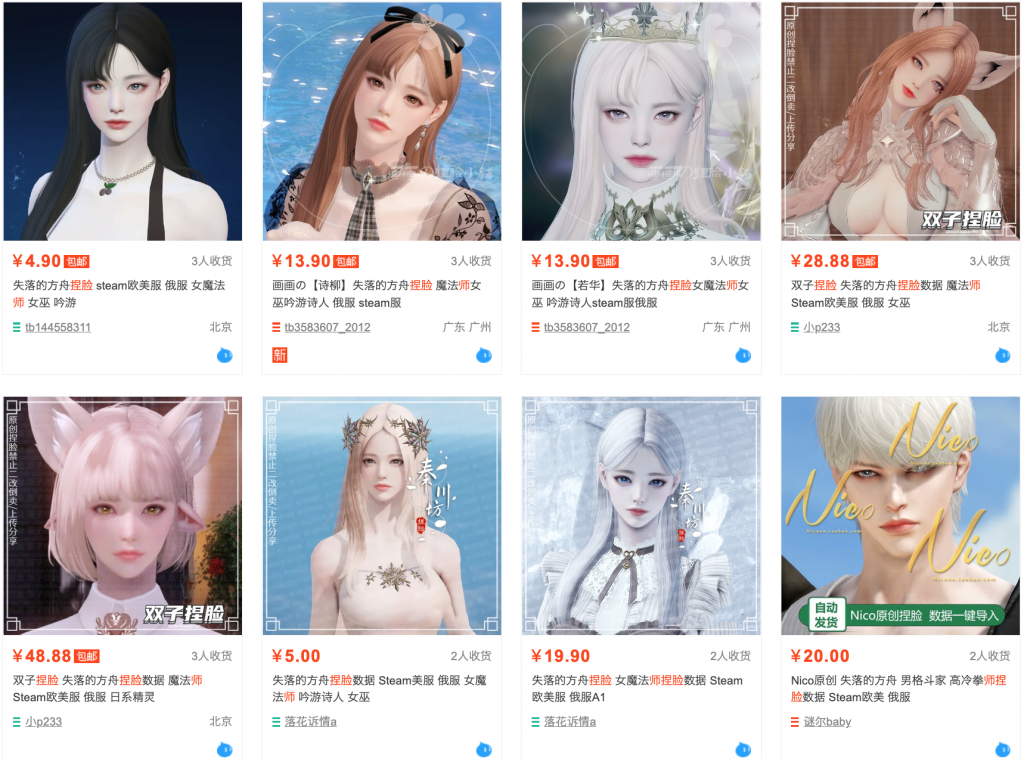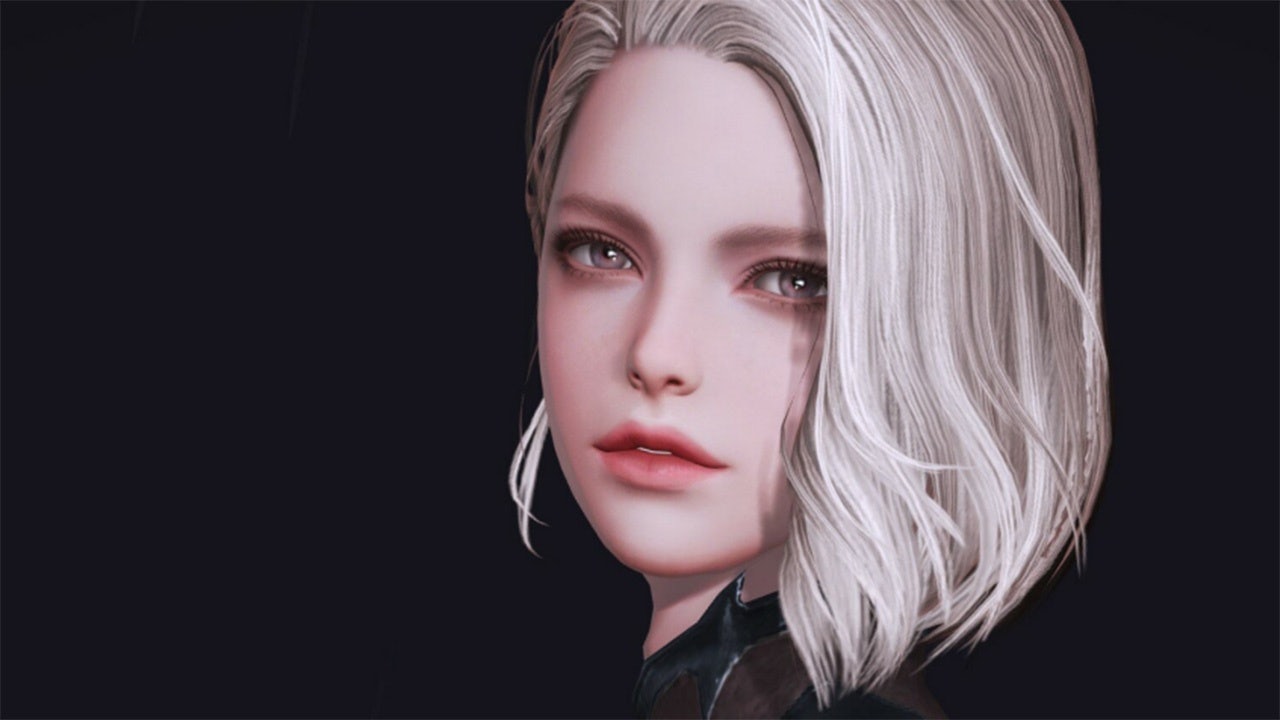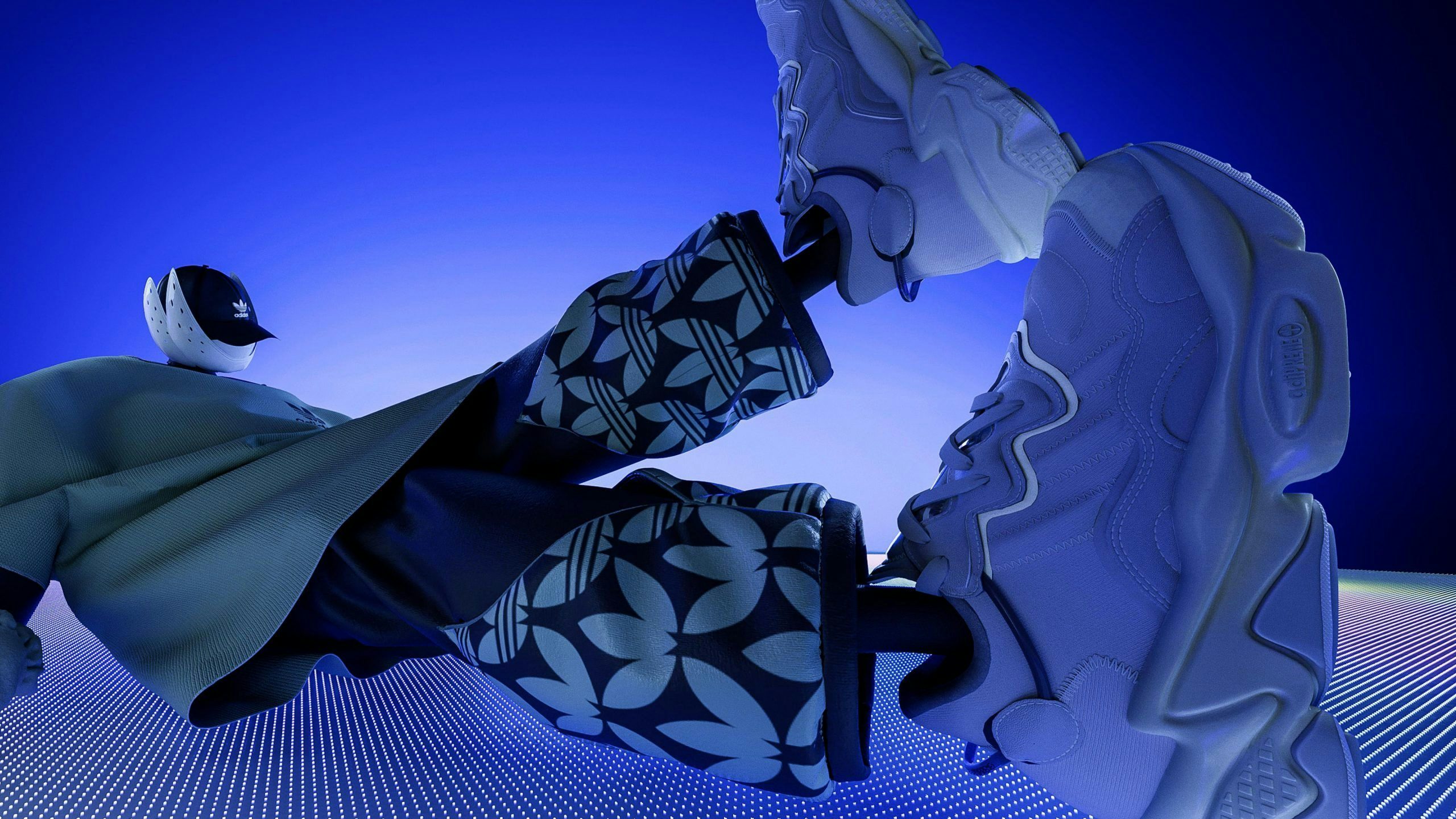A new profession has recently emerged in China, where the tech-savvy can earn close to 6,000 (40,000 RMB) working behind a computer screen as "avatar shapers." With people spending more and more time in virtual worlds, users have begun helping others to build realistic avatars in-game. This is shaping a new career trend.
Previously, games were created by developers in their entirety. Now, participants are equipped with a wide range of tools — and considerable freedom — to refine the appearance of a character in line with their own aesthetic. But players have been left flustered by the sheer volume of choices, with hundreds of options to change such as the shape, size, and position of each facial feature. The abundance of parameters may be a headache for some but for others, it's an opportunity to capitalize on the era of personalization.
Searching for avatar shapers (捏脸师) on Taobao or any other e-commerce platform reveals many listings, ranging from 3 (20 RMB) to 150 (1,000 RMB) a piece, with celebrity lookalike options costing up to 300 (2,000 RMB). The designs can be exported for players to copy and use in any game. An example of the popularity of customized virtual avatars can be found on Soul, an avatar-based social platform that boasted 31.6 million monthly users in 2021, with Gen Z accounting for the majority of its audience. Users can select realistic or cartoon-like avatars in a way that best expresses themselves, with over 30,000 customized designs made by avatar shapers available for purchase.

Given the niche nature of the skill, it can take up to three months to master, with the potential to earn good money for building highly defined faces for avatars. In contrast to their AI-generated counterparts, the finished product is comparable to a work of art, and the consumer pays for the value of an avatar personalized with their real-world appearance.
And so, like cosmetic surgery and luxury clothing, it seems we are just as eager to pay for beauty in the virtual world. According to data from JD.com, this is especially pronounced with Gen Z, whose in-game purchases have been significantly higher than other demographics. Favoring individualization, Gen Z is known for its novel online personalities and aesthetics. This is particularly true with regard to the more immersive visual elements — hence the demand for distinctive customization. Web3 has not been recognized as the creator economy for nothing, and this represents a significant financial opportunity for digital artists.
Increasingly, users will seek portrayals of themselves in the metaverse. While consumers in the west express themselves more through online apparel, in China the preference is for a unique face — as well as bold styles to experiment with. The mainland is already known for its virtual influencers; it’s no surprise, then, that netizens want to take on their own digital form.
Brands should make the most of this trend by providing accessories or makeup looks that can be easily identifiable. To go a step further, they could also adopt virtual avatars as a channel to communicate with Chinese audiences — standing at the forefront of this new digital economy.

